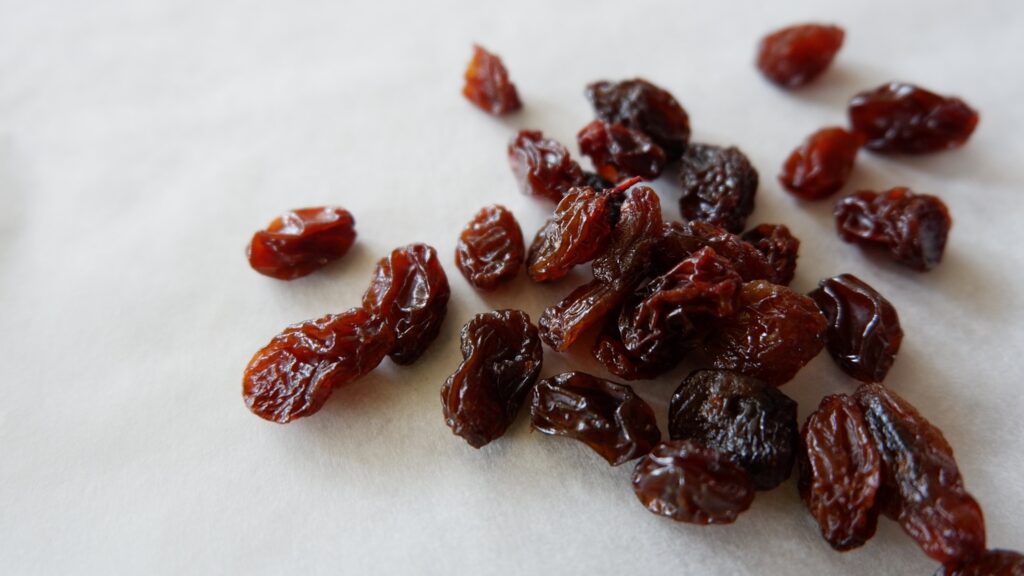
Compounds found in raisins fight bacteria in the mouth that cause cavities and gum disease, according to researchers at the University of Illinois at Chicago.
“Our laboratory analyses showed that phytochemicals in this popular snack food suppressed the growth of oral bacteria associated with caries and gum disease,” said Christine Wu, professor and associate dean for research at the UIC College of Dentistry and lead author of the study. Phytochemicals are compounds found in higher plants.
The data were presented today at the annual meeting of the American Society for Microbiology in Atlanta.
Wu and her co-workers performed routine chemical analyses to identify five phytochemicals in Thompson seedless raisins: oleanolic acid, oleanolic aldehyde, betulin, betulinic acid and 5-(hydroxymethyl)-2-furfural.
Oleanolic acid, oleanolic aldehyde, and 5-(hydroxymethyl)-2-furfural inhibited the growth of two species of oral bacteria: Streptococcus mutans, which causes cavities, and Porphyromonas gingivalis, which causes periodontal disease. The compounds were effective against the bacteria at concentrations ranging from about 200 to 1,000 micrograms per milliliter.
Betulin and betulinic acid were less effective, requiring much higher concentrations for similar antimicrobial activity.
At a concentration of 31 micrograms per milliliter, oleanolic acid also blocked S. mutans adherence to surfaces. Adherence is crucial for the bacteria to form dental plaque, the sticky biofilm that accumulates on teeth. After a sugary meal, these bacteria release acids that erode the tooth enamel.
Wu said that the findings counter a longstanding public perception that raisins promote cavities.
“Raisins are perceived as sweet and sticky, and any food that contains sugar and is sticky is assumed to cause cavities,” Wu said. “But our study suggests the contrary. Phytochemicals in raisins may benefit oral health by fighting bacteria that cause cavities and gum disease.”
“Moreover, raisins contain mainly fructose and glucose, not sucrose, the main culprit in oral disease.”
In an earlier unpublished study, Wu’s collaborator Shahrbanoo Fadavi, a pediatric dentist at UIC, found that adding raisins alone to bran cereal did not increase the acidity of dental plaque. Raisin bran cereal with added sugar, however, did raise acidity levels.
“Foods that are sticky do not necessarily cause tooth decay. It is mainly the added sugar, the sucrose, that contributes to the problem,” Wu said.
 Honey as an antibiotic: Scientists identify a secret ingredient in honey that kills bacteria
Honey as an antibiotic: Scientists identify a secret ingredient in honey that kills bacteria Manuka honey could help clear deadly drug-resistant lung infection
Manuka honey could help clear deadly drug-resistant lung infection Recurrent UTIs linked to gut microbiome, chronic inflammation
Recurrent UTIs linked to gut microbiome, chronic inflammation Friendly bacteria love the humble apple
Friendly bacteria love the humble apple